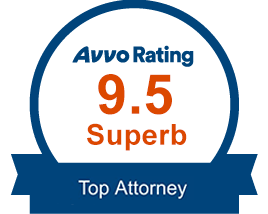Computer Crimes

We Want To Help You!
Schedule an Appointment at One of Our Four Convenient Hampton Roads Offices Near You!
 The Virginia Computer Crimes Act makes it a crime to use a computer to obtain services or goods by false pretense, embezzle or commit larceny. It also makes it crime to use a computer or computer network to remove data or programs, cause the computer to malfunction, or cause injury to the property of another. It is also a crime to use a computer to invade the privacy of another. These crimes can be either felonies or misdemeanors depending on the nature of the crime.
The Virginia Computer Crimes Act makes it a crime to use a computer to obtain services or goods by false pretense, embezzle or commit larceny. It also makes it crime to use a computer or computer network to remove data or programs, cause the computer to malfunction, or cause injury to the property of another. It is also a crime to use a computer to invade the privacy of another. These crimes can be either felonies or misdemeanors depending on the nature of the crime.
If you access data on a password protected computer by either installing a program on the computer or guessing the password, then you could be charged with violating federal wiretapping laws. It is also a crime to install a GPS tracking device on an automobile that you do not own.
If you have been charged with a crime involving the use of a computer, tablet, smart phone or other electronic device you need to have an experienced attorney representing you in court.
The criminal defense attorneys at The Law Offices of John W. Lee, P.C. believe an aggressive defense is the best strategy when someone is charged with a computer crime. They are skilled at analyzing the facts and evidence in each case and utilizing legal challenges to attack and weaken the case prosecutors seek to build. For instance, the methods by which investigators searched for evidence of criminal activity must conform to constitutional guidelines. If they do not, a motion to suppress the evidence could prevent prosecutors from using it to prove their case.
Virginia Computer Crimes Act
The Commonwealth of Virginia has established a computer crime section within the office of the attorney general to investigate and prosecute computer trespass, fraud, identity theft and other criminal activities punishable under the Virginia Computer Crimes Act and other criminal statutes. Anyone under investigation or charged with committing computer crimes in Newport News or elsewhere in the commonwealth needs legal representation from attorneys with the knowledge, skill and experience gained from years of handling tough cases.
The primary statute under which computer crimes are investigated and prosecuted in Hampton Roads, Newport News and other communities is the Virginia Computer Crimes Act. The law, contained in Code of Virginia §18.2-152.1 and the sections that follow, include the following computer offenses:
- Fraud
- Trespass
- Identity Theft
- Theft of Services
- Harassment
The consequences of a conviction for a computer crime in Chesapeake include imprisonment, substantial fines and a criminal record. Cybercrimes are complex, so understanding the different types of computer crimes and possible defenses could prevent a person from violating the law without realizing it.
Computer Fraud
The use of a computer to engage in any of the he following forms of conduct is a crime under Code §18.2-152.3:
- Using false pretenses to obtain property or services
- Commit larceny or embezzlement
- Convert property of another person or entity
Obtaining property or services by false pretenses means to use trickery or fraud. A possible defense to a charge under this section of the law could be the lack of intent on the part of the person accused of committing the crime to deceive or trick anyone.
Computer fraud can be charged as either a misdemeanor or a felony depending upon the value of the property or services. If the value is $200 or more, a person could be charged with a class 5 felony. The charge is a class 1 misdemeanor if the property or services are valued at less than $200.
Harassment by Computer
It is a class 1 misdemeanor under Code §18.2-152.7:1 to use a computer or a computer network to coerce, intimidate or harass someone. The range of conduct that could result in a criminal prosecution under the statute is very broad. Using language in an email or other communication that falls into one of the following categories could lead to criminal prosecution:
- Vulgar
- Obscene
- Profane
- Indecent
- Lascivious
- Lewd
The anonymity some people believe they have on the internet is probably not going to protect them from criminal charges if they engage in harassment or cyber-bullying. The sophisticated technological tools investigators have available to them can trace a communication back to its source to aid in identifying the person who sent it.
Identity Theft
Computers have made it easier to obtain information, including personal information about other people. Conducting a search on Google probably will not violate the law, but the type of information gathered and how it is used could violate Code 18.2-186.3. It is a crime to gather identifying information about another individual without authorization if it is used to commit fraud.
Identifying information under the statute includes the following:
- Name
- Date of birth
- Driver’s license number
- Social Security number
- Credit card and bank account numbers
- Personal identification numbers
- Passwords
Violations of the law are classified and punished as class 1 misdemeanors, but the charges can increase in severity up to a class 4 felony depending upon either the value of the financial loss suffered by a victim or the number of individuals whose identifying information has been taken. This conduct also violates Code §18.2-152.5:1, so a person could face multiple criminal charges, including fraud or theft charges depending upon how the information is used.
Computer Trespass Crimes
There is software available that records the keystrokes when someone uses a computer on which it is installed. Use of such software by people to gather information about someone is illegal in Virginia as computer trespass. Code §18.2-152.4 makes it a crime punishable as either a misdemeanor or a felony.
Computer trespass includes tampering with a computer or with the software running on it when done with malicious intent. It is also unlawful under this section of the law to install software on that allows the installer to control or disrupt the victim’s computer.
Computer Invasion of Privacy
Although it might seem similar to the crime of computer trespass or identity theft, Code §18.2-152.5 makes it a crime to violate another person’s privacy rights by using a computer to access the victim’s employment or financial records for purposes of examining the contents. Unlike the other crimes, merely reviewing the records without having authority to do so is a criminal act. For example, accessing a company’s payroll records without authority to do so to find out how much co-workers are earning is a class 1 misdemeanor.
Computers and Sexually Explicit Material
Possession, sale, distribution or reproduction of sexually explicit material in which a child is the subject is illegal in Virginia Beach and throughout the commonwealth under 18.2-374.1. It is a federal crime when such material is digitally stored and shared or transmitted over the internet.
Computer Crime Defense
The technology used by law enforcement agencies to investigate computer crimes cannot violate a person’s rights under the U.S. Constitution. Searches and seizures must conform to Fourth Amendment requirements that the government obtain a search warrant supported by probable cause before conducting a search and seizing evidence.
The Fifth Amendment and decisions of the U.S. Supreme Court protect people during question by law enforcement agencies. When evidence and statements or confessions are obtain using methods that violate constitutional protections, a Hampton Roads criminal defense attorney can challenge them through motions to suppress.
Hampton Computer Crimes Attorneys
The Hampton Roads criminal defense attorneys at The Law Offices of John W. Lee, P.C. have more than 70 years of combined legal experience, so they understand how law enforcement agencies and prosecutors can make mistakes when charging someone with a computer crime. Reviewing the facts of each case, identifying defenses and challenging weaknesses in the evidence supporting the charges is essential to obtain the best result for someone facing charges. Find out more about what they can do by calling (757) 896-0868 to schedule a free and confidential initial consultation.
